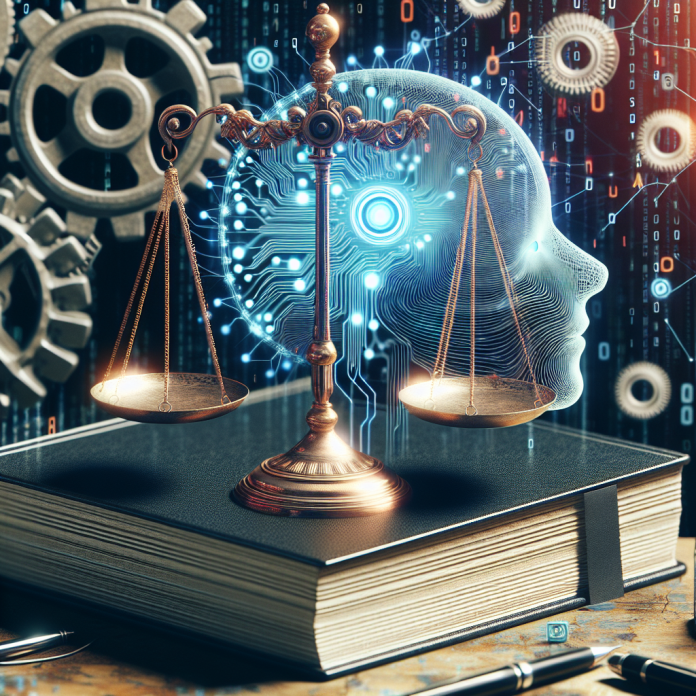Artificial intelligence (AI) has been making waves in the legal industry, promising to revolutionize the way legal professionals work and deliver services. From automated contract analysis to predictive analytics for case outcomes, AI has the potential to streamline processes, improve accuracy, and drive efficiency in the legal landscape.
## The Rise of Legal Tech
The legal industry has traditionally been slow to adopt technology, often relying on outdated processes and manual labor. However, in recent years, the rise of legal tech startups has transformed the way legal services are delivered. These startups are leveraging AI and machine learning to provide innovative solutions to common challenges faced by legal professionals.
One such startup is ROSS Intelligence, a legal research platform powered by IBM’s Watson AI. ROSS uses natural language processing to analyze case law, statutes, and regulations, providing lawyers with comprehensive and up-to-date legal research in a fraction of the time it would take a human researcher.
Another example is DoNotPay, a chatbot that helps users fight parking tickets, get refunds on delayed flights, and navigate legal processes without the need for a lawyer. DoNotPay uses AI to analyze legal documents and provide personalized advice to users, saving them time and money in the process.
## Automating Legal Processes
AI is also being used to automate repetitive tasks in the legal industry, freeing up lawyers to focus on more complex and high-value work. Document review, for example, is a time-consuming process that traditionally requires lawyers to manually sift through stacks of paperwork to find relevant information.
Companies like Kira Systems and Luminance are using AI to streamline the document review process, allowing lawyers to quickly extract key information from contracts, agreements, and other legal documents. These AI-powered tools can identify clauses, provisions, and obligations within seconds, significantly reducing the time and resources needed to review documents.
## Predictive Analytics in Law
Predictive analytics is another area where AI is making a significant impact in the legal industry. By analyzing vast amounts of data from past cases and rulings, AI can help lawyers predict the outcomes of legal disputes with a high degree of accuracy.
LexMachina, for example, uses AI to analyze litigation data and provide insights into judge and party behavior, case outcomes, and legal strategies. By using predictive analytics, lawyers can make informed decisions about case strategy, settlement negotiations, and risk assessment, ultimately improving their chances of success in court.
## Ethical and Legal Implications
While AI has the potential to bring significant benefits to the legal industry, it also raises important ethical and legal implications that need to be addressed. One of the main concerns is bias in AI algorithms, which can lead to discriminatory outcomes in legal decisions.
For example, a study by researchers at the University of California, Berkeley found that AI algorithms used by judges to predict recidivism rates in criminal defendants were biased against African American defendants. The algorithms were more likely to incorrectly label African American defendants as high risk, leading to harsher sentences and unfair outcomes.
Another concern is the lack of transparency in AI decision-making, making it difficult to understand and challenge the outcomes produced by AI algorithms. This lack of transparency can raise questions about accountability and the potential for errors to go unnoticed, leading to unjust outcomes for individuals involved in legal proceedings.
## The Future of AI in Law
Despite these challenges, the future of AI in the legal industry looks bright. As AI technology continues to evolve and improve, legal professionals can expect to see even greater benefits from incorporating AI into their workflows.
Law firms that embrace AI are likely to gain a competitive edge over their counterparts by delivering faster, more accurate, and cost-effective legal services to their clients. By automating routine tasks, predicting case outcomes, and improving decision-making, AI can help lawyers focus on providing high-quality legal advice and representation to their clients.
In conclusion, the legal landscape is rapidly evolving with the integration of AI technology. From automating legal processes to predicting case outcomes, AI is reshaping the way legal professionals work and deliver services. While there are ethical and legal implications that need to be addressed, the potential benefits of AI in the legal industry are undeniable. As AI technology continues to advance, legal professionals can expect to see even greater efficiencies and improvements in the way they practice law.

